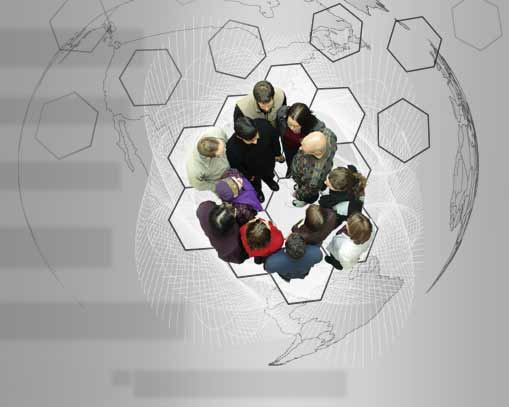Empirical Evidence for Collective Intelligence
Friday, October 8th, 2010 When creating designs optimized for how minds work it is important to recognize that any solution can include five types of minds – individual, extended, group, emergent and machine. An emergent mind includes any group of minds where collective intelligence develops. But is there really any such things as collective intelligence that makes emergent minds functionally different than just a group of people working together? Recent examples such as prediction markets and various crowdsourcing models clearly imply the answer is yes but no one has demonstrated collective intelligence scientifically – until now.
When creating designs optimized for how minds work it is important to recognize that any solution can include five types of minds – individual, extended, group, emergent and machine. An emergent mind includes any group of minds where collective intelligence develops. But is there really any such things as collective intelligence that makes emergent minds functionally different than just a group of people working together? Recent examples such as prediction markets and various crowdsourcing models clearly imply the answer is yes but no one has demonstrated collective intelligence scientifically – until now.
A recent article in Science, Evidence of Collective Intelligence Factor in the Performance of Human Groups, not only demonstrates a general collective intelligence for groups (much like we have already demonstrated a general intelligence for individuals) but the results have strong implications for cognitive design. You can get a good overview of the work from an MIT press release.
“We set out to test the hypothesis that groups, like individuals, have a consistent ability to perform across different kinds of tasks,” says Anita Williams Woolley, the paper’s lead author and an assistant professor at Carnegie Mellon’s Tepper School of Business. “Our hypothesis was confirmed,” continues Thomas W. Malone, a co-author and Patrick J. McGovern Professor of Management at the MIT Sloan School of Management. “We found that there is a general effectiveness, a group collective intelligence, which predicts a group’s performance in many situations.”
Further they found that the strength or amount of collective intelligence:
* did not correlate strongly to the individual intelligence found in the group
* correlates strongly to the average ability of group members to recognize emotional states (social sensitivity) and how well the opportunity to make conversation was shared amongst group members.
There should be no surprise that groups that work better together will have a higher collective intelligence. What is useful is the empirical evidence that suggest to get that effect you need higher individual emotional intelligence on average and a mechanism that promotes a broad distribution of conversational turn-taking. This is very different than other architectures that support collective intelligence such as prediction markets and certain types of crowdsourcing.